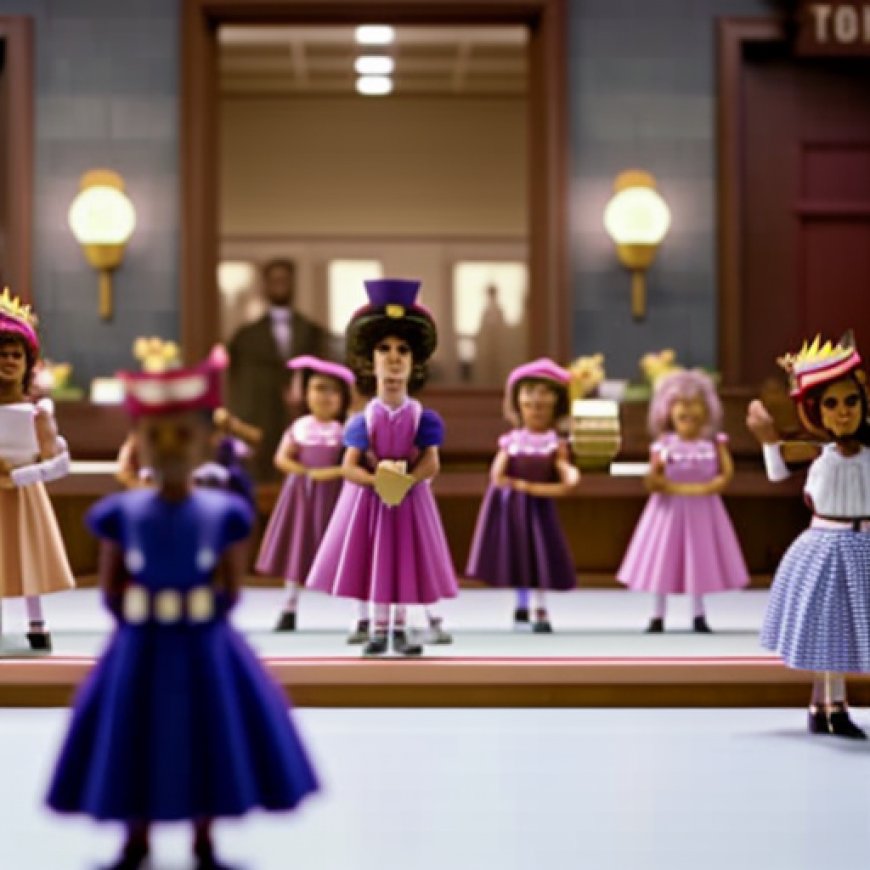Court Allows Case Challenging Segregation in N.Y.C. Schools to Advance
Court Allows Case Challenging Segregation in N.Y.C. Schools to Advance The New York Times


The Lawsuit Challenging Racial Segregation in New York City’s Public Schools
The lawsuit calls out “pernicious racial inequality” in the nation’s largest school district. If successful, it could lead to changes to gifted and selective programs, or even their elimination.
A major lawsuit challenging racial segregation in New York City’s public schools was allowed to move forward on Thursday, raising the potential that it will bring landmark changes to admissions at selective schools in the nation’s largest school system.
Starting as early as kindergarten, city students are sorted into two different academic tracks in which they take either general elementary school classes or specialized gifted and talented classes. Children in the latter track are often funneled into selective middle and high schools.
The suit argues that many Black and Latino students face “systematic exclusion” from the gifted and selective pipelines, which blocks them from “prime educational opportunities” and denies their right to a sound education under the State Constitution.
The case, if successful, could ultimately force fundamental changes to admissions policies at hundreds of selective schools, one of the most divisive education issues in New York and around the country.
A lower court judge had previously dismissed the suit, ruling that it asked the court system “to make educational policy,” which is beyond its purview. But on Thursday, a New York appellate court found that the decision was an “error” and allowed the case to proceed.
In its ruling, the court found that arguments between lawyers for the state and the city blaming each other “lead to the nonsensical result that no government entity is responsible for a sound basic education.”
Mark Rosenbaum, one of the lawyers who filed the suit, said on Thursday: “This is a historic decision. It means it’s the beginning of the end of the two-tiered education system in New York City.”
The court’s decision could reignite an emotional debate about racial and economic segregation in one of the nation’s most diverse cities. After previous leaders vowed to reshape the education system but ultimately changed little, Mayor Eric Adams and his schools chancellor opted not to prioritize integration. Now, the ruling may force the administration into the conversation.
The suit could now become the highest-profile education case in New York in more than a decade, and it is likely to resurrect heated arguments among parents and policymakers about the merits of selective admissions policies.
An increasingly powerful faction of families has argued that selective programs provide rigor and opportunities to students who work hard for them. But supporters of desegregation, including local educators, have called attention to longstanding gaps between Black and Latino children and their peers in reading proficiency and graduation rates. They point to how selective admissions can divide privileged parents from vulnerable families.
During the arguments over the appeal, several judges signaled that they believed the case could have merit.
“We cannot just keep on saying, ‘This problem is too big — there’s nothing we can do about it,’” Justice Sallie Manzanet-Daniels, of the Appellate Division of the State Supreme Court in Manhattan, told a lawyer for the city at the time.
“Meanwhile, thousands and thousands and thousands of children keep on being graduated from a system that’s not teaching them,” she said.
The lawsuit is distinct in the landscape of K-12 education. Unlike conservative efforts to roll back admissions policies aimed at racial diversity — including a suit at an elite Virginia public high school that may reach the Supreme Court — the New York case argues that students are entitled to an “anti-racist education.”
On Thursday, city education officials said they were still reviewing the court’s decision. The administration shares the lawyers’ goal of making schools fairer and more accessible, officials said, adding that the suit was “not the answer.”
At a news briefing, Daniel Weisberg, the first deputy chancellor, pointed to plans to open nine new schools in the fall — including some in underserved areas — in an effort to give “everybody the best opportunity to get a great education.”
JP O’Hare, a spokesman for the State Education Department, noted that the court had acknowledged that the complaint “is not a model of clarity or concision” and said that officials were confident that the claims would be dismissed. The department “remains committed to ensuring that all students” have access to a high-quality education, he said.
Mr. Rosenbaum said he and the other civil rights lawyers who filed the suit would move forward with the case at “warp speed.” But, he added, he would like to see it resolved before a potential trial.
Join us, as fellow seekers of change, on a transformative journey at https://sdgtalks.ai/welcome, where you can become a member and actively contribute to shaping a brighter future.
Introduction
Court Decision and Potential Impact
Arguments and Perspectives
Response from Education Officials








